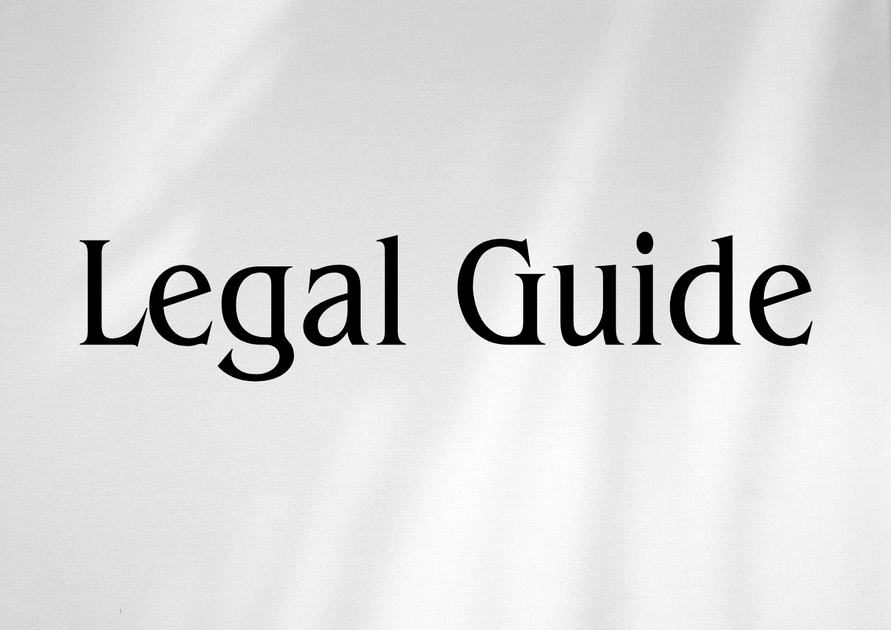Introduction – The Legal Landscape of AI Algorithms and Licensing Agreements in the UAE
In the digital era, artificial intelligence (AI) is rapidly transforming business operations across the United Arab Emirates (UAE). From healthcare diagnostics to smart logistics and financial services, AI-driven solutions are embedded in every sector. As organizations increasingly integrate AI algorithms into their offerings—whether developed in-house or licensed from third parties—compliance with UAE law becomes not only a best practice but a business imperative. The regulatory landscape in the UAE concerning AI and related licensing agreements is evolving quickly, particularly following recent landmark legislations such as Federal Decree-Law No. 44 of 2021 on the Regulation and Protection of Industrial Property Rights, Federal Decree-Law No. 34 of 2021 Regarding the Fight Against Rumors and Cybercrimes, and new guidance from the Ministry of Justice in 2024.
This article provides an expert consultancy perspective on what the law says about AI algorithms and licensing agreements in the UAE for 2025, offering legal analysis, actionable insights, and practical guidance. Whether you are a business leader, legal practitioner, or HR professional navigating commercial contracts or technology deployment, understanding these regulations is critical to protect your organization’s interests, minimize risk, and achieve legal compliance in a fast-evolving domain.
Table of Contents
- Overview of the Legal Framework Governing AI Algorithms in the UAE
- Understanding Licensing Agreements for AI in the UAE
- Recent Legal Updates: UAE Law 2025 Updates and Their Impact
- Practical Insights: Applying the Law to AI Licensing in the UAE
- Managing Risks and Ensuring Legal Compliance in AI Licensing
- Comparative Analysis: Old vs New Law
- Case Studies and Hypothetical Scenarios
- Suggested Visuals and Compliance Checklists
- Conclusion: Future-Proofing Your AI Licensing Strategy Under UAE Law
Overview of the Legal Framework Governing AI Algorithms in the UAE
Relevant Laws and Regulatory Authorities
The legal position on AI algorithms in the UAE is shaped by a combination of federal legislation, ministerial guidelines, and regulatory agency mandates. Key pieces of legislation and regulatory players include:
- Federal Decree-Law No. 44 of 2021 – Regulating industrial property rights, with emphasis on patents and industrial designs, including software-based innovations and AI algorithms.
- Federal Decree-Law No. 34 of 2021 – Covering cybercrime, data privacy, and digital content, directly impacting AI’s deployment and data use.
- Circulars and Guidelines from the Ministry of Justice and Artificial Intelligence Office – Guidance on ethical AI use, fair licensing, and compliance frameworks.
- Other Laws and Regulations – Such as the Commercial Transactions Law (Federal Law No. 18 of 1993), IT regulation, and intellectual property statutes.
AI Algorithms: Legal Status and IP Protection
AI algorithms, whether machine learning models or complex software routines, are primarily protected in the UAE under the umbrella of copyright and, where innovative, under patent law. The key provisions:
- Copyright protection for source code, structure, and outputs of the AI (Federal Law No. 38 of 2021 on Copyright and Related Rights).
- Patent protection for novel and inventive technical solutions, including some AI methods or business solutions realized through software (Federal Decree-Law No. 44 of 2021).
- Exclusion of certain computer programs from patentability unless they produce a further technical effect (per Ministry of Economy guidelines, 2023).
It is vital for enterprises and legal departments to determine whether their AI solution is copyrightable, patentable, or both—each category offers distinct protection and licensing options.
Understanding Licensing Agreements for AI in the UAE
Core Elements of AI Licensing Agreements
Licensing agreements for AI in the UAE are fundamentally governed by:
- Contract Law (Articles 125–286, Federal Law No. 5 of 1985 (Civil Transactions Law));
- Relevant IP Laws – Especially those governing the licensing of copyright, patents, and trade secrets;
- IT and Data Protection Compliance (Federal Decree-Law No. 45 of 2021 Regarding the Protection of Personal Data);
- Export and Economic Substance Regulations—for cross-border software flows;
- Official guidelines on AI licensing from the UAE Artificial Intelligence Office.
The typical AI licensing agreement must address:
- Scope and field of use (e.g. restricted to certain industries or geographical areas);
- Term and termination conditions;
- Ownership of improvements and derivatives;
- Confidentiality and reverse engineering restrictions;
- Compliance with data, cybersecurity, and export controls;
- Dispute resolution clauses referencing UAE law and, where appropriate, arbitration in accordance with the Dubai International Arbitration Centre (DIAC) rules.
Enforceability and Special Considerations
Licensing agreements are enforceable as contracts under UAE law. However, particular attention must be paid to:
- Public Policy Exceptions (Article 148 of Federal Law No. 5 of 1985): Any clause contrary to UAE public order is void.
- IP Registration and Disclosure: Licensing of patents and registered copyright must be appropriately recorded with the Ministry of Economy, particularly for exclusive licenses.
- Employee/Contractor-Created Algorithms: Clear clauses must allocate ownership of AI/IP created during employment or consultancy, consistent with the UAE Labour Law (Federal Decree-Law No. 33 of 2021).
Recent Legal Updates: UAE Law 2025 Updates and Their Impact
Key Changes Affecting AI and Licensing
The UAE government’s digital agenda continues to update the legal regime relating to AI and software. Significant 2025 updates include:
- Expanded Data Protection Obligations (Amendments to Federal Decree-Law No. 45 of 2021): Stronger requirements for data minimization, transparency in AI decision-making, and user consent.
- Intellectual Property Law Updates: Streamlined procedures for registering AI inventions, with clearer criteria for software patentability (Ministry of Economy Circular No. 24 of 2024).
- Mandatory Entity Registration for AI Deployers: New 2025 regulations require companies deploying certain high-impact AI systems to register with relevant authorities, declare intended use, and submit periodic compliance reports (Cabinet Resolution No. 15 of 2025).
- Specific Licensing Conditions for Algorithmic Tools: Guidance from the Ministry of Justice (2024) outlines essential elements and disclosures required in commercial AI tool licensing, including transparency about system limitations and intended uses.
- Stricter Penalties for Unauthorised Use: The Federal Legal Gazette (March 2024) published increased statutory penalties, including higher fines and potential criminal liability, for unauthorized use or sublicensing of AI algorithms without the rights holder’s consent.
Recommended Table: Overview of UAE Law 2025 Updates Relevant to AI Licensing
| Legal Area | Pre-2025 Law | 2025 Update |
|---|---|---|
| Data Protection | Broad consent, basic data minimization | Enhanced obligations for transparency, algorithmic explainability, explicit consent for AI-generated decisions |
| IP Licensing | Procedures unclear on software patentability | Simplified AI patent application, recording obligations for exclusive licenses |
| AI Entity Registration | No registration required for enterprise AI use | Mandatory registration for high-impact AI deployments; compliance reporting required |
| Statutory Penalties | Civil damages and contract-based remedies | Increased fines; expanded criminal liability for willful infringement |
Practical Insights: Applying the Law to AI Licensing in the UAE
Navigating Ownership and Rights Allocation
In practice, one of the most frequent issues encountered in AI licensing is properly allocating ownership—including clarifying rights in training data, base models, improvements, and outputs. Leading UAE organizations are advised to:
- Conduct thorough due diligence before entering any AI licensing or partnership, verifying that the licensor owns (or has the power to license) each AI component.
- Negotiate precise definitions of “Licensed Materials,” “Improvements,” and “Outputs” in the contract, with examples spelled out in annexures—even more critical given new Ministry of Justice guidelines requiring contractual transparency.
- Define rights in derived models: If the licensee fine-tunes a machine learning model using proprietary UAE customer data, which party owns the improved model? This must be negotiated upfront and documented.
Cross-border Licensing and Data Sovereignty
For multinational operations, care is needed to respect UAE data localization rules, as clarified under the 2025 amendments. It may be unlawful to export certain datasets or provide AI services hosted outside the UAE. Licensing terms should include:
- Representations and warranties that the licensor’s AI does not unlawfully export or process data contrary to UAE law;
- Data hosting/location clauses identifying where the AI model and data will reside;
- Dispute resolution preference for UAE courts or established arbitral institutions in the jurisdiction.
Integrating AI in Employment Agreements
The 2021 Labour Law overhaul (Federal Decree-Law No. 33 of 2021) impacts the allocation of IP in employee-created works. It is critical for UAE employers to:
- Include express clauses in employment and consultancy contracts addressing ownership of AI inventions, code, and data sets created in the course of employment;
- Record any transfer or licensing of such IP in accordance with Federal Decree-Law No. 44 of 2021, to ensure enforceability against third parties.
Managing Risks and Ensuring Legal Compliance in AI Licensing
Risks of Non-Compliance
Quantifiable legal risks now exist for organizations that fail to comply with the UAE’s updated AI licensing legal regime. These include:
- Civil and contractual claims: Claims for damages, contract rescission, or injunction for unauthorized use or breach of IP.
- Regulatory penalties: Fines ranging from AED 200,000 to AED 5 million for failures under the AI registration regime or unlawful data processing, per Cabinet Resolution No. 15 of 2025.
- Criminal liability: Where there is willful infringement or fraudulent AI deployment, responsible executives can face criminal prosecution (Federal Decree-Law No. 34 of 2021).
- Business interruption: Suspension or revocation of business licenses for serious, repeated breaches.
Recommended Compliance Strategies
- Audit existing licensing agreements for conformance to latest legal standards, especially around transparency obligations and registration with the Ministry of Economy.
- Implement structured internal compliance frameworks—assign responsibility to legal or compliance staff to periodically review licensing practices and submit required reports (per Cabinet Resolution No. 15 of 2025).
- Train employees and management in updated AI and IP compliance protocols, with a focus on cross-functional understanding (legal, technical, data).
Suggested Visual: Compliance Checklist for AI Licensing Agreements
| Compliance Requirement | Completed (Y/N) | Notes/Document Reference |
|---|---|---|
| IP Rights Due Diligence | ||
| Data Sovereignty Clauses | ||
| Registration with Ministry of Economy (if applicable) | ||
| Transparency in System Limitations | ||
| Regular Compliance Audit Scheduled | ||
| Employee-created IP Clauses in Place |
Comparative Analysis: How UAE Law 2025 Differs from Prior Legal Regimes
The regulatory overhaul in 2025 reflects a shift toward greater protection for IP rights holders and increased accountability for AI deployers. The table below provides a consultant’s snapshot of the changes most relevant to AI licensing:
| Regulatory Area | Pre-2025 Regime | 2025 Legal Position | Practical Impact |
|---|---|---|---|
| Proof of Ownership for Licensing | Self-declared statements accepted | Mandatory proof, often notarized or Ministry-verified | Licensors must maintain certified IP documentation |
| End User Restrictions | General purpose clauses | Detailed field-of-use, sector, and sub-license restrictions per current sectoral regulations | Agreements must be updated for sector clarity |
| Penalties for Unauthorized Use | Limited, mostly contractual | Enhanced statutory fines and potential criminal exposure | Heightened regulatory risk and mandatory compliance reporting |
| Compliance Monitoring | Voluntary or ad hoc | Annual reporting and compliance frameworks required for high-impact AI | Organizations need structured compliance processes |
Case Studies and Hypothetical Scenarios
1. UAE Retail Bank Licensing U.S.-based AI Fraud Detection
Fact Pattern: A Dubai-headquartered bank enters a licensing agreement with a U.S. fintech for a real-time fraud detection AI platform. The agreement includes standard license grants, confidentiality, and basic data processing clauses.
- Legal Issues: With 2025 updates, the licensing agreement now requires certified registration of the exclusive license, explicit system explainability commitments, regular compliance reporting, and clarification of data storage locations.
- Consultancy Insight: The bank faces regulatory risk if the agreement omits jurisdiction-specific disclosures or fails to operationalise data localization clauses; compliance must be verified before go-live.
2. UAE Tech Startup Licensing Self-Improving AI to European Client
Fact Pattern: A Dubai AI startup licenses its proprietary model to a German client. The model retrains itself on the client’s data and improves performance over time.
- Legal Issues: The new legal regime mandates precise clauses defining ownership of the improved model, clarity on data flows out of the UAE, and harmonization with EU-UAE data export compliance. The startup must also consider patenting novel self-improvement processes under the Ministry’s new guidelines.
- Consultancy Insight: Without these compliance measures, both parties risk cross-border IP disputes and regulatory sanctions.
3. Non-compliance Penalty: Local SME Using Unlicensed AI Toolkit
Fact Pattern: An SME uses a commercially distributed AI toolkit without confirming the licensor’s ownership or obtaining proper registration.
- Legal Outcome: A competitor files a complaint. Under 2025 law, the SME is fined AED 300,000 and ordered to cease use, resulting in operational disruption and reputational damage.
- Consultancy Insight: Now, SMEs in the UAE must treat AI licensing as a core compliance function and perform legal due diligence rather than a formality.
Suggested Visuals and Compliance Checklists for AI Licensing
1. Compliance Process Flow Diagram (Suggested Placement)
Visual suggestion: Place a compliance process flow diagram here illustrating the journey from AI procurement/creation to licensing, registration, and ongoing monitoring under UAE law.
2. Contractual Clauses Reference Table
| Clause | Purpose | Legal Source |
|---|---|---|
| Scope of License | Defines what is licensed and for what use | Federal Law No. 5 of 1985 (Civil Transactions Law), Art 246 |
| IP Ownership & Derivatives | Establishes parties’ rights in improvements, outputs | Federal Decree-Law No. 44 of 2021, Art 10-16 |
| Confidentiality | Protects trade secrets/AI logic | Federal Law No. 38 of 2021 |
| Data Safeguards | Ensures compliance with data protection laws | Federal Decree-Law No. 45 of 2021 |
| Compliance & Reporting | Mandates reporting to authorities for high-impact AI | Cabinet Resolution No. 15 of 2025 |
| Dispute Resolution | Specifies dispute forum (UAE courts/DIAC) | Federal Law No. 11 of 1992 – Civil Procedure Code |
3. Compliance Audit Planning Checklist
- Are all AI licenses current, and are exclusive licenses registered with the Ministry of Economy?
- Have all end uses, data flows, and field-of-use restrictions been mapped?
- Does the contract expressly allocate IP rights in improvements and outputs?
- Are employee/contractor IP assignments and disclosures current and recorded in staff files?
- Is ongoing compliance monitoring and reporting in place for qualifying AI projects?
Conclusion: Future-Proofing Your AI Licensing Strategy Under UAE Law
The regulatory environment for AI in the UAE is moving swiftly toward greater structure and compliance requirements, especially for organizations that license, deploy, or create AI algorithms. The updated legal regime in 2025—anchored by Federal Decree-Law No. 44 of 2021, Cabinet Resolution No. 15 of 2025, and Ministry of Justice and Economy guidance—requires a proactive, expert-driven approach.
Key takeaways for UAE businesses and legal professionals include:
- AI algorithms and related software now enjoy stronger statutory protection, and licensing agreements must be drafted and administered to align with new statutory obligations.
- Registration and compliance reporting, especially for high-impact AI deployment, are essential to legal and regulatory standing.
- Non-compliance exposes businesses and executives to higher penalties and reputational risk than ever before.
- Best practice is to integrate legal, technical, and management teams in a holistic compliance ecosystem, underpinned by regular audits, staff training, and expert legal advisory support.
As the UAE continues to establish itself as a global leader in digital transformation and AI ethics, organizations prioritizing compliance, transparency, and strategic licensing will be best positioned for sustainable growth and competitive advantage in the years ahead.
For tailored advice, contract review, or an AI licensing compliance audit, consult a qualified UAE legal advisor with demonstrated expertise in technology law and up-to-date knowledge on federal decree-law and Cabinet resolutions. Staying one step ahead will ensure your organization both leverages and protects the immense potential of AI in the UAE’s evolving legal landscape.




